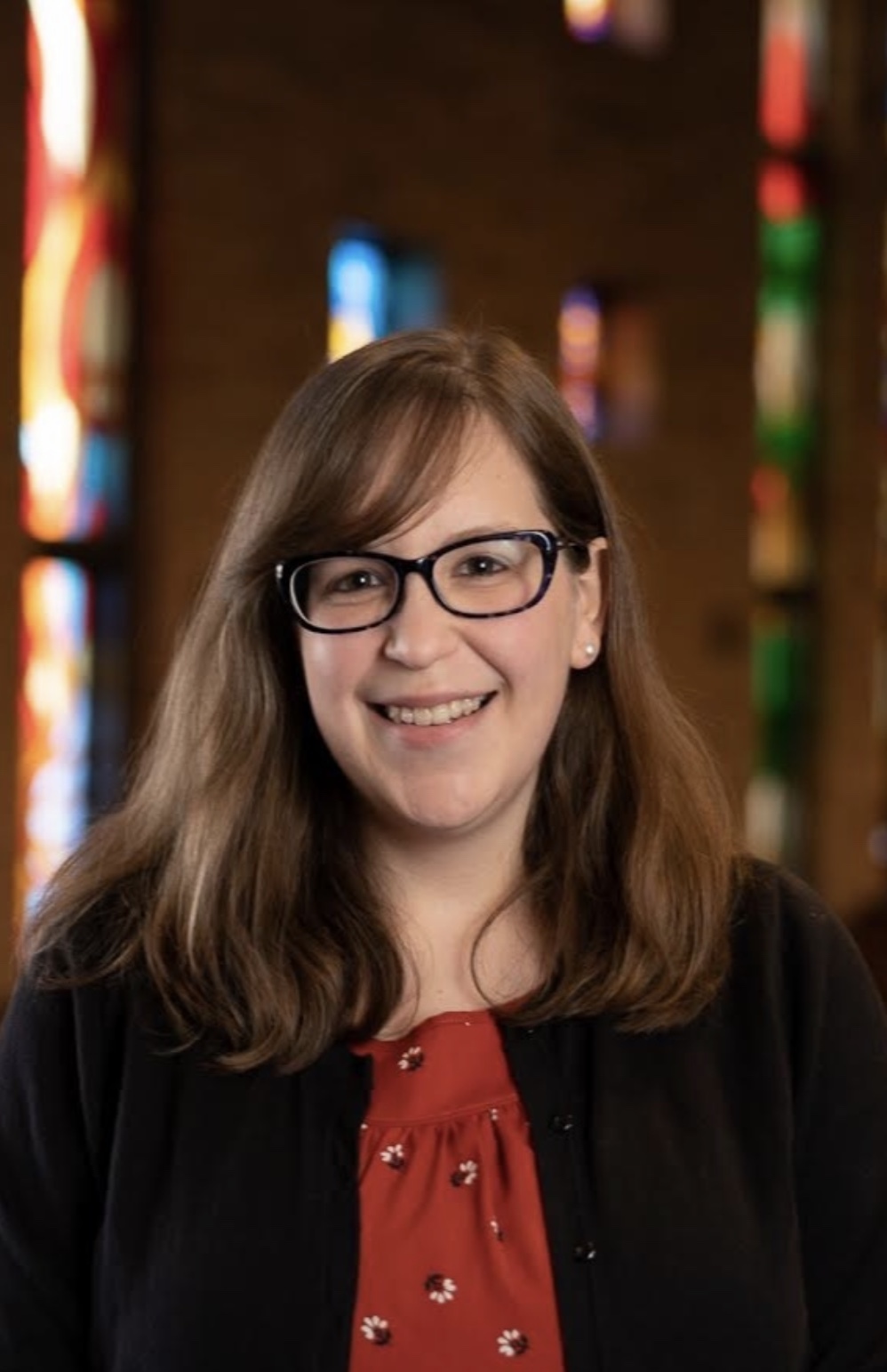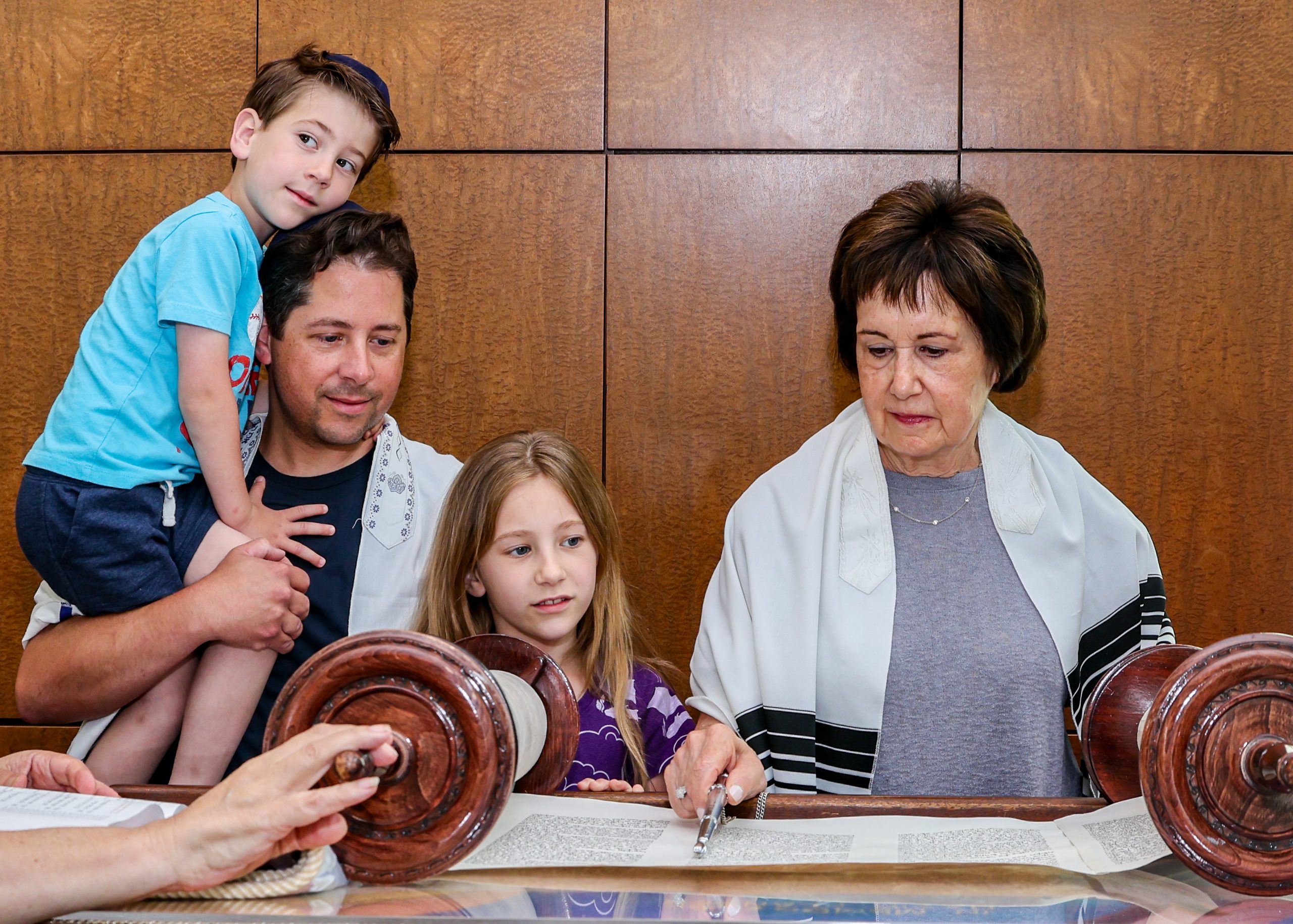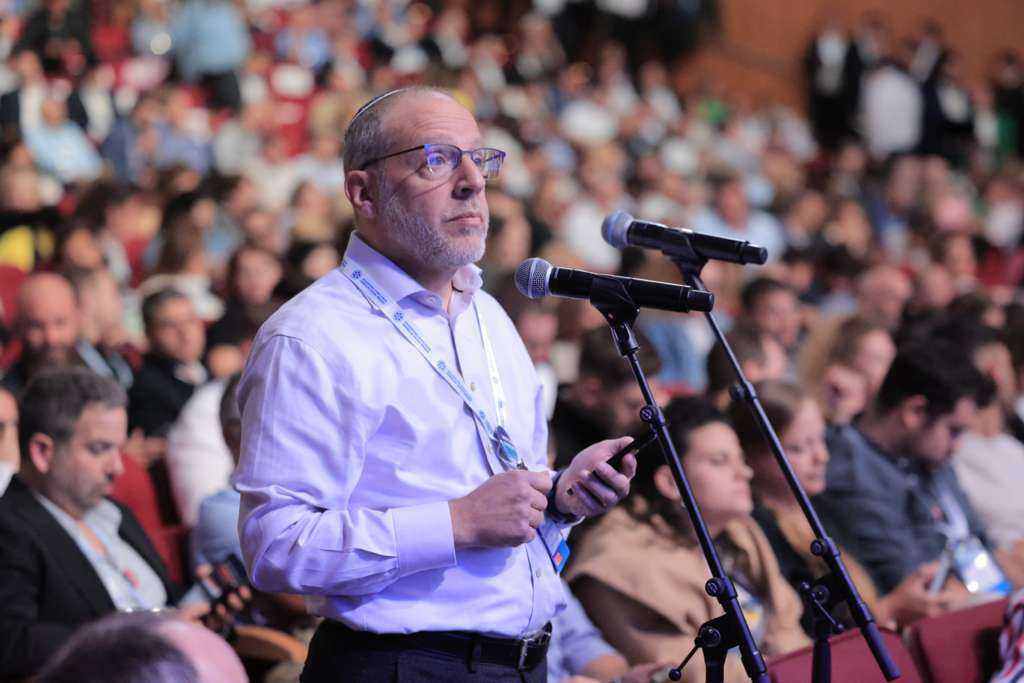
This month’s Leadership Connections Spotlight is on Cantor Sarah Levine. I had the opportunity to learn more about her role as a Cantor and her facilitation of USCJ’s Imun this year. Cantor Sarah Levine had a strong Jewish upbringing but did not realize she wanted to be a Cantor until much later in life. She was raised in Cherry Hill, New Jersey. Her Jewish education started early because she attended a Jewish Day School, Kellman Brown Academy, until sixth grade. She recalls learning the Torah trope in fourth grade. She was always intrigued by how musical Jewish prayers were even as a young girl singing Aleinu at school. After sixth grade she started attending Hebrew School at Temple Beth Sholom in Cherry Hill, where her family attended synagogue. She had her Bat Mitzvah with Rabbi Steve Wernick. After which, her mother taught her the importance of helping to make a minyan, and she attended shul most Saturday evenings to do just that. While she was there, lay leaders would often suggest that she lead the minyan. In high school she started reading the full Torah portion for the second day of Rosh Hashanah. Later in high school she was given the Yom Kippur Torah readings as well. Her love of leading, leining, and creating Jewish communities started at an early age.
When she graduated high school, she first attended Widener University, where she was the only Jew in her friend group. She held on to her Jewish traditions, even lighting a Chanukiah with her non-Jewish friends in a car when candles were prohibited in the dorm. She transferred to Temple University in Philadelphia for her second year where she thought she would be a Music Education major. She planned to be a high school choir director because of her love of music and her heavy involvement in choir at her own high school. But after her first year, she changed her mind and became a Jewish studies major instead. She intended to pursue a career in Holocaust education, which had been a major part of her upbringing. It was not until she graduated college that she thought Cantorial school might be the direction she wanted to go. At the time she was looking for Jewish Education Programs. She and a classmate went to visit Hebrew College in Newton Massachusetts. Her mother and her Rabbi Steven Lindeman suggested she consider Cantorial schools. She was accepted at JTS and attended in the fall of 2012. By the end of her second year which included interning at Adat Shalom Emanuel in Rehovot in Israel, she knew she wanted to be a Cantor.
She has been the Cantor at West End Synagogue in Nashville, Tennessee since 2017. She will be the new Cantor at B’nai Aviv in Weston, Florida in August. She thanks her mentors for enabling her to be where she is now. She has mirrored what she learned from Cantor Jen Cohen, Rabbi Steven Lindeman, Cantor Ben Tisser, Hazzan Matthew Austerklein and H.L. Miller Cantorial School director, Cantor Nancy Abramson.
It is Cantor Sarah Levine’s own history of leading services as a high school student that makes her such an excellent facilitator of USCJ’s Imun. It is an incredible opportunity for lay leaders to dedicate a week to learning how to improve their davening skills or learn some new ones. Aimee Close has been a very impactful leader and a wonderful organizer, bringing together lay leaders from all over the country. Through intensive one hour sessions, Imun participants(Imuniks) learn how to lead Kabbalat Shabbat, Shabbat Shacharit (including Birchot HaShachar and P’sukei D’zimra, Musaf, and more. Cantor Levine’s counterpart, Rabbi Rob Scheinberg, does an amazing job teaching Imuniks how to lead life cycle events, write divrei Torah, and how to run a shiva minyan. Together they lead a lesson on Ta’amei Hamikrah (Torah trope). Separately, Cantor Levine leads a lesson on Tahara and Chèvre Kaddish and Rabbi Rob Scheinberg leads a session on how the siddur was put together. When USCJ called to ask if Cantor Sarah Levine would lead the program, she had to say yes. In her own words, “Those with or without clergy in these smaller shuls are keeping the Jewish people connected and alive. They help their clergy to be able to take time off. They support their communities with their own time and lead by example. With lay leaders like our Imuniks, synagogue life is firmly supported and can thrive.”









